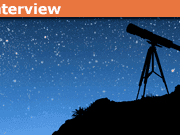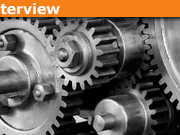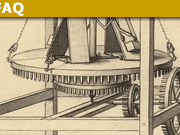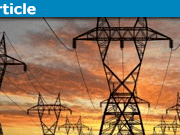Interview with Engineer Mentor anorlunda
Tell us about your school years?
Part of my story is sad but common. I was a poor student. I didn’t pay attention, and I never did homework even once; until one day when it all flipped. That was the day I first learned about differential equations. Diffy-Q was so much fun, that it completely turned around my attitude and my success as a student.
The next chapter in my story is a bit odd. In my senior year as graduation approached, my professor, (Dr. M.S.A.A. Hammam at Clarkson) told me, “No job interviews for you. I have arranged for you to work for General Electric (GE), in Schenectady, NY where they do power engineering. Report there for work on June 8.” I learned later that Professor Hammam did that with many of his students. His judgement about which student fit which career slot was nearly perfect. I can’t imagine such paternalism being accepted today, but it worked then.
The place he sent me was an internal consulting group at GE, specializing in calculation and analysis. That group was the direct legacy of Charles Proteus Steinmetz. Steinmetz changed the predominant approach to EE practice, putting mathematical analysis foremost. Prior to Steinmetz, Edison’s tinkering methods dominated the EE profession.
I started at GE as the dumbest guy in the room. That position is a powerful motivator to improve yourself. Then they sent me to work with the GE engineers at Project Apollo and the Saturn V rocket project. Instantly, I became the dumbest guy in the room once again. Three times more in my career, I found myself surrounded by smarter people. The last of those was when I found PF. I think that is marvelous career strategy. When you reach the 51st percentile of smartness among peers in the room, move up to the next room.
Tell us about your career in power engineering.
My first passion centered on training simulators for nuclear power plant operators. They were the direct analogy of flight simulators that pilots are trained with. I was involved in all of the modeling: nuclear, thermal, electric, mechanical, control & instrumentation, and ergonomics. The models were mostly based on first principles, and physics; not curve fits. That was a marvelous learning experience. It was even more fun because my first simulator was written and debugged exclusively in binary using those blinking lights and switches on the computer front panel. No languages, no OS got in the way. (Perhaps I’ll write a nostalgic Insights article someday about debugging in binary.)
I continued working on more and more capable simulators for 17 years. It was an uphill battle the whole time to convince utilities that these extraordinarily expensive toys were worth the money. In 1979, the Three Mile Island accident turned that around. Overnight, simulators changed from extravagant toys, to being mandatory.
My second passion was power system analysis. In 1970, I wrote a power system simulator program still used today by utilities worldwide under the name PSS/E. After GE, I was fortunate to work at the foremost power engineering consultant, PTI, and also for the ASEA ATOM which (IMO) made the world’s best nuclear plants.
My final project before retirement was almost as much fun as those simulators. The project married energy futures and services markets (akin to stock markets) with the real-time control of the grid to form a seamless whole. That means balancing power production with demand while satisfying security constraints on one hand, handling the economics, transfers of money, and compliance with law on the other hand. It was deliciously multidisciplinary. I liked it because it forced me to learn so much beyond traditional power engineering. Think about it. You have distributed customers out there flipping electrical devices on/off at will (not to mention weather event), simultaneous with rich companies bidding to buy and sell the services (billions of dollars change hands), all constrained by instantaneous conservation of energy, Ohm’s Law, and hundreds of thousands of contingencies that threaten the security. It truly is a grand scale problem.
What are your interests beyond engineering?
I enjoy flying gliders, and I spent 10 years serving as a firefighter. But the big thing for me has always been sailing. I learned early in life that sailing was the perfect cure for overwork. When I stepped onboard a sailboat, the rest of the world was forgotten.
At age 60, I took early retirement. My wife Libby and I had no difficulty deciding what to do in retirement; our fondest memories were all about times on a sailboat. So we sold our house, cars, and nearly all belongings, bought a cruising sailboat, and began a whole new life. For 13 years we lived on the boat and cruised full time, covering about 60,000 nautical miles (2.7 times the Earth’s circumference). Libby calls those the best years of our lives. On my blog, I wrote more than 2,700 articles about our cruising life. (If you want to read them, do it in chronological order.) Alas, eventually old age made blue water sailing too strenuous and we had to give it up. Getting old sucks, even if it is better than the alternative.
What technologies are you keeping track of and most excited about?
Today, I am retired. But I’m very excited about the opportunities for power engineering in the remainder of the 21st century. It is clear that the business model of the electric utility is threatened. We are moving toward much more distributed power supply. Nevertheless, the need for reliable power, multiple backups, and affordability for all people remains unchanged. People living in big cities can’t have their own solar panels or wind farms on their balconies, nor is every city close to wind or solar resources. The power grid must persist even if the power companies don’t. 21st century power engineers may find their services even more vital than their 20th century predecessors. Change threatens business, but change stimulates engineers.
Other than that, I’m a fan of The Technological Singularity. It may not happen exactly on schedule in 2045, but I’m optimistic that it will come. I love it because change stimulates engineers.
Who are some of your science heroes and why?
That’s easy. #1 is Thomas Alva Edison, because he was such an excellent engineer in so many engineering fields. I’ve read several biographies about Edison. My favorite is, “Edison, His Life and Inventions”. Edison’s childhood exploits read like an engineering version of Indiana Jones. That book is available free in the public domain.
By the way, I am proud of the fact that my home town, Schenectady, NY, USA, has bronze statues of Edison and Steinmetz on the main street. It is the only city I know that honors EEs more than politicians, generals, and artists. Schenectady has much in common with Västerås, Sweden, Baden, Switzerland, and Hitachi, Japan. A closely knit community of power engineers are familiar with all those places.
My #2 hero is Enrico Fermi. Although Fermi’s Nobel Prize was for physics, what I read in “The Making of The Atomic Bomb”, led me to think of Fermi as perhaps the best engineer of the 20th century. As an example of Fermi’s good sense: At the Trinity test of the first atomic bomb, Fermi watched from 20 miles away. He dropped a slip of paper at the first flash of light. Then he estimated the yield of the bomb by observing horizontal distance that paper moved while falling as the shock wave passed by. Fermi’s estimate was very close to the final answer. It is a disgrace that there is no Nobel prize for engineering. ☹
Out of the nearly dozen PF Insights you’ve written what are a few of your favorites. What were your motivations and goals for them?
My articles on AC Power were much needed on PF because those concepts are needed to answer so many frequent questions.
But I had the most fun writing, How to Better Define Information in Physics. That was inspired by things I read on PF. I found it amazing that conservation of information was considered so critical and so fundamental in physics, yet almost every public discussion of the topic is spoiled because the participants all carry in their heads different definitions of what the word means.
By the way, my article brings no finality to that question. Rather it highlights the many ways the word information can be correctly defined. If and when someone does find a rigorous definition of information that applies in all contexts, it may open a rich new avenue of physics research.
How did you happen upon Physics Forums and why is it important to you?
My physics education in engineering school was paltry. Just elementary physics. But those training simulators forced me to learn more. I found that I really do love physics. After retirement, I watched all 240 hours of Professor Leonard Susskind’s physics lectures. I like them so much that when done, I go back to the start and watch them all over again. I’m on my 3rd time though. It was probably while researching some physics question on the Internet that I first found PF. Since that day, PF is my number two passion (public speaking with Toastmasters International is my first.)
I think PF is a jewel because it offers all of us so much opportunity to learn, and to help others to learn. PF also manages to do so with very little of the bad behavior, incivility, and falsehoods that infect most other public Internet forums. Since becoming a PF mentor, I learned what it takes behind the scenes to keep it that way. I’m humbled by the keen instincts and good judgments of the other mentors. That brings me back to where I started; my favored position is to be the junior mentor, and the dumbest guy in the room.
I have a BS in Information Sciences from UW-Milwaukee. I’ve helped manage Physics Forums for over 22 years. I enjoy learning and discussing new scientific developments. STEM communication and policy are big interests as well. Currently a Sr. SEO Specialist at Shopify and writer at importsem.com








Of course great interview.
Loved his comment about Fermi. Feynman while working on the Atomic Bomb project was stuck on this problem. Fermi came on over and asked what was going on. He explained clearly and in simple terms the solution. Feynman was sort of shocked – that was Feynman's forte, but he out Feynmaned Feynman. After that their was a threesome often seen together in deep discussion – Feynman, Fermi and Von-Neumann. I think Feynman basically thought both above him. They had a lot of contests doing mental calculation, often joined by Bethe, and who usually came out on top – Fermi – yes Von-Neumann was bested at what he was good at, like Feynman was. Fermi – a much underrated physicist who like Feynman was also a great teacher, but unlike Feynman was also a very good experimentalist. He was known as the Pope for good reason. Of course it has to be said Von-Neumann made a number of key contributions to the project such as using a bomb around the fissionable material to get it to critical density and keep it there long enough to really go BANG – up there with actually creating the first self sustaining fission reactor that Fermi did – just to add a bit of perspective.
Thanks
Bil
Great interview! This part is scary, though…
Other than that, I’m a fan of The Technological Singularity. It may not happen exactly on schedule in 2045, but I’m optimistic that it will come. I love it because change stimulates engineers.
Reference https://www.physicsforums.com/insights/interview-with-engineer-mentor-anorlunda/